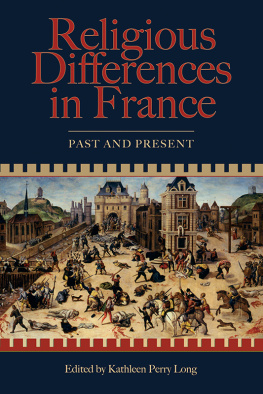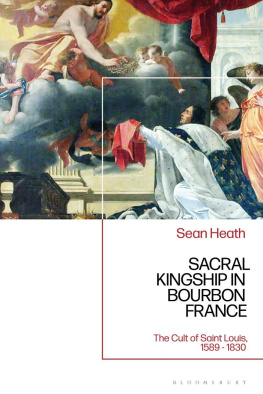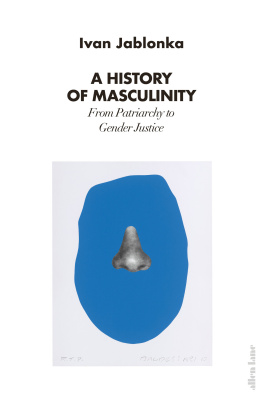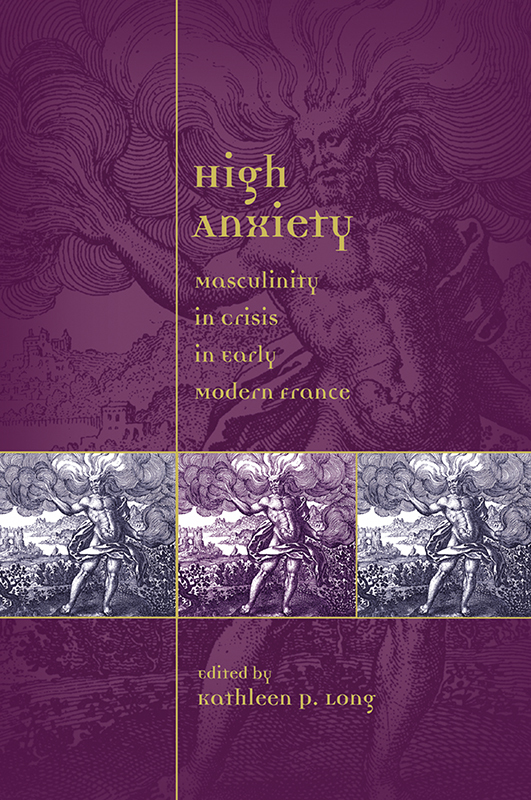
High Anxiety
Habent sua fata libelli
S IXTEENTH C ENTURY E SSAYS & S TUDIES S ERIES
G ENERAL E DITOR
R AYMOND A . M ENTZER
University of Iowa
E DITORIAL B OARD OF S IXTEENTH C ENTURY E SSAYS & S TUDIES
E LAINE B EILIN
Framingham State College
M IRIAM U . C HRISMAN
University of Massachusetts, Emerita
B ARBARA B . D IEFENDORF
Boston University
P AULA F INDLEN
Stanford University
S COTT H . H ENDRIX
Princeton Theological Seminary
J ANE C AMPBELL H UTCHISON
University of WisconsinMadison
C HRISTIANE J OOST- G AUGIER
University of New Mexico, Emerita
R ALPH K EEN
University of Iowa
R OBERT M . K INGDON
University of Wisconsin, Emeritus
R OGER M ANNING
Cleveland State University, Emeritus
M ARY B . M C K INLEY
University of Virginia
H ELEN N ADER
University of Arizona
C HARLES G . N AUERT
University of Missouri, Emeritus
T HEODORE K . R ABB
Princeton University
M AX R EINHART
University of Georgia
J OHN D . R OTH
Goshen College
R OBERT V . S CHNUCKER
Truman State University, Emeritus
N ICHOLAS T ERPSTRA
University of Toronto
M ERRY W IESNER- H ANKS
University of WisconsinMilwaukee
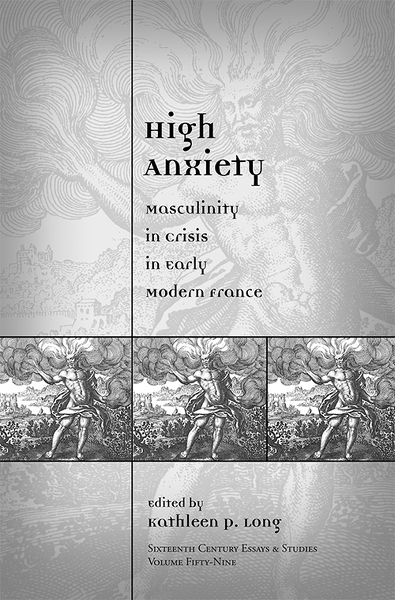
Copyright 2002 Truman State University Press
Kirksville, Missouri 63501 USA
All rights reserved
http://tsup.truman.edu
The Library of Congress had catalogued the print edition as follows:
Library of Congress Cataloging-in-Publication Data
High anxiety : masculinity in crisis in early modern France / edited by Kathleen P. Long.
p. cm. (Sixteenth century essays & studies ; v. 59)
Includes bibliographical references and index.
ISBN 0-943549-91-4 (alk. paper) ISBN 0-943549-92-2 pbk. : alk. paper)
1. French literature16th centuryHistory and criticism. 2. Masculinity in literature. 3. MasculinityFrance. I. Long, Kathleen P., 1957. II. Series.
PQ239 .H54 2001
840.9353dc21
2001035159
Cover illustration: De Secretia natura from M. Maier, Atalanta fugiens, hoc est, emblemata nova de secretis naturae chymica (Oppenheim: Hieronymus Galler for Johann Theodorus de Bry, 1618).
Text is set in Bembo and DTC Optimum. Display type is DTC Optimum.
Cover and title page by Teresa Wheeler, Truman State University designer.
Printed in U.S.A. by Thomson-Shore, Dexter, Michigan
No part of this work may be reproduced or transmitted in any format by any means, electronic or mechanical, including photocopying and recording, or by any information storage or retrieval system, without permission in writing from the publisher.
The paper in this publication meets or exceeds the minimum requirements of the American National Standard for Permanence of Paper for Printed Library materials Z39.48 (1984).
Sequential numbers in square brackets [ ] in the body of the text refer to the page number in the print edition; citations appeared as footnotes in the print edition.
Note: Because of display limitations of e-readers, some special characters (e.g., Greek or Hebrew letters, cedillas, characters in Eastern European languages, accents or other diacritical marks; may not display properly in the e-book version of this work.
Contents
Cathy Yandell
Jeffery Persels
The Homosocial Economy of Dirty Jokes
Amy Staples
Stephen Murphy
Maternity without Women in Male French Renaissance Lyric
Kirk Read
Virgile and Its Geographies of Gender
Tom Conley
Kathleen Long
Mitchell Greenberg
Louis XIV and the Abb de Choisy
Virginia M. Marino
Murat, dAulnoy, and the Limits of Civilized Masculinity
Lewis C. Seifert
A Crisis of Authority in Early Modern France
Catharine Randall
I would like to thank Catharine Randall, whose advice and work on early versions of this collection were crucial for advancing the project. I am grateful to the contributors themselves, who demonstrated incredible patience and understanding as the project went through various phases. I thank Ray Mentzer for taking this project on, and to the readers who provided valuable advice. Most of all, however, I would like to thank Paula Presley and her team at Truman State University Press, who performed the herculean labors of making this collection look and sound its best; their work has been truly impressive.
A number of people inspired this collection; the contributors themselves, of course, but also my colleagues. Mitchell Greenberg, whose work appears in this collection, has been an intellectual inspiration. Nelly Furman encouraged me to ask questions about gender and its relation to epistemology long before such pursuits were in vogue; may she long continue to be in the avant garde of intellectual pursuits. Lawrence Kritzmans work on gender and sexuality also had a significant influence on my own. Finally, I would like to thank the students who heard versions of my own work, and discussed this collection with me: Duane Rudolph, Shannon Clute, Nicolas Barras, Justin Portnoy, and Patricia Gravatt.
Kathleen P. Long, Editor
The past decade has seen explosive growth in the number of critical inquiries pertaining to gender, sexuality, and the body. Nonetheless, the representation of masculinity in early modern French culture has received little attention to date.
Much of the work on the relationship between gender and identity formation in early modern Europe has viewed the Continent through predominantly English lenses, as if cultural specificities had no relevance to the understanding of particular cultural manifestations. This perspective effaces the issue of the very particular contexts in which gender identity (designated as sexe in early modern French, and thus conflated to some degree with essential biology) is problematized. The rigid hierarchies of church and state, which overlay a more fluid society and culture, privilege the masculine at the dawn of the early modern period. From Aristotle on, the male is defined as the ideal, the perfected state of humankind, but the vehement insistence on this assumption, echoed by the often violent misogyny of the querelle des femmes, reveals an anxiety about the status of masculinity that becomes particularly evident in the late Middle Ages and the Renaissance. For a variety of reasons, most obviously the social disorder ensuing from the Wars of Religion, this anxiety seems to become quite acute in France subsequent to the Calvinist reformation, and does not abate even in the seventeenth century, perhaps from fear of a return to the upheavals of the preceding century. Rather, it becomes the grounding for an examination of the nature of political power, as Mitchell Greenbergs article in this collection demonstrates.
Recent criticism links the rise of the modern subject and of a certain notion of individualism to the seventeenth century; this link is exposed clearly in the works of Dalia Judovitz and Greenberg. Stephen Murphys and Catharine Randalls essays in this collection raise at least one aspect of this issue; perhaps other studies will follow.
In the domain of philosophy, recent revisionist views of the body look back beyond Hegelian dialectic and the binary system it might seem to confirm, to Spinoza as the avatar of monism.


